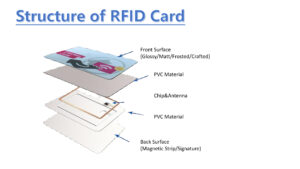Table of Contents
ToggleIntroduction
RFID (Radio Frequency Identification) technology, renowned for its strong resistance to interference and eliminating the need for manual identification, proves extremely valuable in a variety of fields demanding efficient data collection and tracking. Let’s explore eight principal domains where RFID technology finds significant application.

Warehouse/Transportation and Logistics
Embedding RFID tags in products enables automatic data gathering by RFID readers in warehouses, retail environments, and logistics chains. This technology boosts delivery speed and precision while deterring counterfeiting and supporting anti-fraud measures.
- Key Benefits:
- Automated data collection
- Enhanced delivery speed and accuracy
- Counterfeit prevention
Access Control and Attendance Management
Corporations and large-scale events can greatly benefit from RFID technology by pre-storing identity or biometric information. This enables swift and convenient identification and check-in via door scanning systems, saving time and reducing labor requirements.
- Key Benefits:
- Rapid identification and check-in
- Time and labor efficiency
- Ideal for businesses and large gatherings
Asset Management in Institutions
RFID technology is employed by institutions with extensive assets, such as libraries, museums, and art galleries, to ensure comprehensive management and stringent protection measures. RFID systems alert administrators to any unauthorized movements or potential threats.
- Key Benefits:
- Thorough asset management
- Enhanced security measures
- Alerts for unauthorized activities
Vehicle and Security Inspection
In railway systems, RFID technology facilitates the automatic recognition of vehicle numbers and data entry, substantially reducing the time spent on manual data collection and improving precision in vehicle dispatch and maintenance.
- Key Benefits:
- Automated vehicle identification
- Time-saving on manual tasks
- Improved dispatch accuracy
Medical Information Tracking
Hospitals use RFID technology to track case files, waste, medications, and other critical data, greatly boosting the operational efficiency and service quality within healthcare facilities.
- Key Benefits:
- Efficient tracking of cases and waste
- Improved medication tracking
- Enhanced hospital service levels
Defense and National Security
RFID technology plays a crucial role in tracking essential military assets such as medications, firearms, ammunition, and vehicles in real-time, ensuring national security and enhancing operational efficiency in defense operations.
- Key Benefits:
- Real-time tracking of military assets
- Ensures national security
- Operational efficiency in defense
Retail Inventory Management
Retailers utilize RFID technology to manage inventory accurately, preventing overstock and stock shortages, and reduce theft. This significantly enhances store operations and overall management efficiency.
- Key Benefits:
- Precise inventory control
- Prevention of overstock and understock
- Enhanced security and efficient operations
Livestock and Animal Management
RFID chips implanted in livestock ensure effective tracking and management on farms or during transportation, enabling the monitoring of health, movement, and breeding cycles, leading to improved livestock management.
- Key Benefits:
- Effective livestock tracking and management
- Monitoring of health and movement
- Better breeding management
Conclusion
The diverse applications of RFID technology across multiple sectors highlight its versatility and effectiveness in improving efficiency, security, and accuracy in data management and asset tracking. By adopting RFID technology, industries can achieve enhanced operational efficiency, accuracy, and security.
